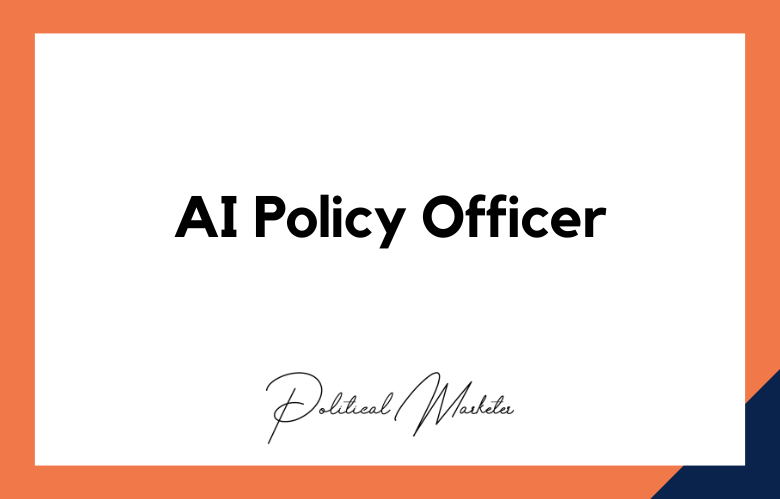In the ever-evolving landscape of modern politics, utilizing cutting-edge technology has become not just an option but a necessity. With the advent of artificial intelligence (AI), political campaigns and governing bodies are increasingly turning to sophisticated algorithms and data-driven insights to gain a competitive edge and better connect with constituents.
AI Tools Enter the Political Arena: Behind the Scenes with Back-End Teams
In the high-stakes arena of politics, the integration of advanced technologies has revolutionized how campaigns are conducted and decisions are made. Artificial intelligence (AI) tools have emerged as indispensable assets, offering insights, predictive analytics, and targeted strategies that shape the trajectory of political movements. However, while the spotlight often shines on the front-end spectacle of political rallies and speeches, the dedicated teams working behind the scenes genuinely wield the power of AI innovation.
Join us as we embark on a journey behind the curtains of political campaigns, delving into the crucible of back-end teams in harnessing the potential of AI tools. From data scientists crafting algorithms to campaign strategists interpreting insights, these individuals form the backbone of the political AI revolution. Together, they navigate the intricate web of data analytics, ethical considerations, and strategic decision-making to propel their candidates and causes forward.
However, behind every AI-powered political initiative lies a team of skilled professionals working diligently in the back-end, navigating complex ethical, technical, and strategic considerations.
Join us as we delve into the intriguing world behind the scenes of AI tools in the political arena. From campaign strategists to data scientists, software engineers to ethicists, these individuals form the backbone of the AI revolution, reshaping the political landscape. Through their expertise and dedication, they are revolutionizing political decisions and raising critical questions about transparency, accountability, and the ethical use of AI in governance.
In this examination, we’ll uncover the multifaceted roles played by these back-end teams, the challenges they face, and the ethical frameworks guiding their work. From crafting algorithms that analyze vast amounts of data to designing AI-driven campaign strategies, these professionals are at the forefront of a technological revolution that promises both transformative benefits and profound ethical dilemmas.
Unveiling the Impact: AI Tools Revolutionize Political Strategies in 2024
In 2024, AI tools have become indispensable in revolutionizing political strategies, fundamentally altering how campaigns are run, decisions are made, and public opinions are shaped. Here’s how AI is leaving its mark on the political landscape:
Precision Targeting: AI-driven data analytics enable campaigns to pinpoint specific demographics, neighborhoods, and individuals with tailored messaging. By leveraging vast datasets, including voter histories, social media activity, and consumer behavior, campaigns can identify potential supporters and customize outreach efforts to maximize impact.
Real-Time Insights: AI-powered sentiment analysis tools monitor social media platforms, news outlets, and public opinion polls in real time. This provides campaigns with immediate feedback on messaging effectiveness, emerging issues, and voter sentiment, allowing for rapid adjustments and course corrections.
Optimized Resource Allocation: Predictive analytics models forecast election outcomes and identify battleground areas where resources can have the most significant impact. Campaigns can strategically allocate funds, staff, and advertising efforts, maximizing efficiency and competitiveness.
Personalized Engagement: AI chatbots and virtual assistants engage with voters on digital platforms, offering customized interactions and information dissemination. These automated systems can answer inquiries, provide updates on campaign events, and even simulate natural conversations, enhancing voter engagement and accessibility.
Dynamic Messaging: Natural language processing (NLP) algorithms analyze speech patterns, word choice, and sentiment to optimize messaging for different audiences. Whether it’s a stump speech, debate response, or social media post, AI helps craft messages that resonate with diverse voter groups, increasing persuasion and connection.
Issue Prioritization: AI tools analyze public discourse and feedback to identify trending issues and constituent priorities. This allows candidates and policymakers to tailor their agendas to address pressing concerns, demonstrating responsiveness and relevance to voter needs.
Mitigating Misinformation: AI algorithms detect and combat the spread of misinformation and disinformation campaigns. By analyzing content patterns and identifying suspicious sources, AI helps safeguard the integrity of political discourse and public trust in democratic processes.
Enhanced Security: AI-driven cybersecurity measures protect against hacking attempts, data breaches, and election interference. Machine learning algorithms monitor network activity, detect anomalies, and fortify electoral infrastructure, ensuring the integrity and confidentiality of voting systems.
Policy Simulation: AI simulations model the potential impacts of proposed policies, helping policymakers evaluate their efficacy and anticipate unintended consequences. This data-driven approach informs evidence-based decision-making and fosters public trust in governance.
Constituent Feedback Loop: AI platforms aggregate and analyze feedback from constituents, providing valuable insights into community needs and preferences. Elected officials can use this data to inform policy decisions, prioritize resources, and demonstrate accountability to their constituents.
Decoding the Role of Back-End Teams in AI-Powered Political Campaigns
The marriage between technology and strategy has never been more pronounced in modern politics. With the rise of artificial intelligence (AI), political campaigns are transforming profoundly, leveraging data-driven insights to understand, engage, and mobilize voters like never before.
Yet, while the spotlight often shines on the front-end aspects of these AI-powered campaigns – the captivating advertisements, personalized messages, and targeted outreach – the unsung heroes working behind the scenes genuinely drive the engine of innovation.
Enter the back-end teams: a diverse group of professionals spanning disciplines from data science and software engineering to ethics and policy. Together, they form the backbone of AI-powered political campaigns, translating raw data into actionable insights, designing algorithms to optimize voter outreach, and grappling with the ethical implications of their work.
In this exploration, we examine the vital role of end-to-end teams in AI-powered political campaigns. From the intricacies of data analysis and algorithmic design to the ethical considerations guiding their decisions, these teams navigate a complex landscape where technological innovation intersects with political strategy and societal impact.
Inside Look: How AI Tools Are Reshaping the Political Landscape of 2024
AI tools are increasingly shaping the political landscape, offering insights, optimizing campaigns, and influencing voteHere’svior. Here’s a glimpse’re how they’re reshaping politics in 2024:
Data Analytics for Targeted Campaigns: AI algorithms analyze vast amounts of data, including demographics, social media activity, and voter histories, to identify critical issues and target specific voter groups. Campaigns can tailor messages and strategies for maximum impact, reaching potential supporters more effectively.
Predictive Analytics: AI-powered predictive models forecast election outcomes by analyzing polling data, candidate performance, and socio-economic indicators. This helps campaigns allocate resources strategically, focusing on battleground areas and swing voters.
Sentiment Analysis: AI tools monitor social media platforms, news articles, and public opinion polls to gauge real-time sentiment toward candidates and policies. Campaigns can adjust their messaging and respond promptly to emerging issues, enhancing their relevance and resonance with voters.
Personalized Communication: AI-driven chatbots and virtual assistants engage with voters on websites, social media, and messaging apps, providing customized responses to inquiries, disseminating campaign information, and encouraging voter turnout. These interactions create a sense of connection and accessibility, fostering voter engagement.
Deepfake Detection: With the proliferation of deepfake technology, AI algorithms are deployed to detect and mitigate the spread of manipulated audio and video content designed to discredit candidates or distort their messages. This safeguards the integrity of political discourse and helps combat misinformation.
Policy Simulation: AI simulates the potential impact of proposed policies and legislative decisions, enabling policymakers to assess their efficacy, anticipate unintended consequences, and make informed choices. This data-driven approach enhances governance transparency and accountability.
Election Security: AI tools bolster election security by detecting and thwarting cyber threats such as hacking attempts, disinformation campaigns, and voter fraud. Machine learning algorithms analyze suspicious activity patterns and enhance electoral infrastructure resilience against evolving risks.
Constituent Feedback Analysis: AI platforms aggregate and analyze feedback from constituents, identifying prevalent concerns and priorities within communities. Elected officials can use this data to inform their policy agendas, address constituent needs, and demonstrate responsiveness to public sentiment.
Navigating the Ethical Terrain: AI Integration in Political Back-End Operations
In the ever-evolving landscape of political campaigning, the integration of artificial intelligence (AI) has emerged as a powerful tool, promising unparalleled insights and efficiencies. Behind the scenes, however, lies a complex ethical terrain that demands careful navigation. As AI permeates the back-end operations of political campaigns – from data analysis to targeted messaging – questions of privacy, fairness, and democratic integrity come to the forefront.
In this exploration, we delve into the ethical considerations surrounding the integration of AI in political back-end operations. Each step raises profound questions about transparency, accountability, and the broader societal impact of AI-driven political strategies, from collecting and analyzing voter data to deploying algorithmic decision-making.
Join us as we navigate this ethical terrain, shedding light on the challenges faced by back-end teams tasked with harnessing the power of AI while upholding democratic values and principles. Through case studies, expert insights, and ethical frameworks, we uncover the complexities of AI integration in political campaigns and the imperative of responsible innovation in pursuing democratic ideals.
Behind Closed Doors: The Inner Workings of AI in Political Campaigns
As political campaigns evolve in the digital age, artificial intelligence (AI) has become increasingly prevalent behind closed doors. From the public eye, sophisticated algorithms and data-driven strategies are shaping the fabric of political engagement and decision-making. However, the inner workings of AI in political campaigns remain largely shrouded in mystery, leaving many questions about its impact on democracy, privacy, and societal norms.
In this exploration, we peel back the curtain on the clandestine world of AI in political campaigns, offering a glimpse into the inner workings that drive modern political strategies. From predictive analytics and micro-targeting to sentiment analysis and automated content generation, AI algorithms are revolutionizing every aspect of campaign operations, often with profound implications for the electoral process and beyond.
Join us as we embark on a journey behind closed doors, where data scientists, strategists, and technologists collaborate to harness the power of AI in pursuit of political objectives. Through interviews, case studies, and expert analysis, we uncover the motivations, challenges, and ethical dilemmas faced by those operating at the intersection of technology and politics.
In shedding light on the inner workings of AI in political campaigns, we seek not only to demystify this complex landscape but also to provoke critical reflection on the broader implications for democracy, transparency, and civic engagement in the digital era.
Conclusion:
The emergence of AI tools in the political arena marks a significant shift in how campaigns are strategized, managed, and executed. Behind the scenes, back-end teams play a crucial role in harnessing AI’s power to analyze vast amounts of data, optimize messaging, target specific voter demographics, and streamline campaign operations.
However, this technological advancement also raises important ethical considerations regarding privacy, manipulation, and transparency. As AI continues to evolve, it is essential for political stakeholders to navigate these complexities responsibly, ensuring that AI tools are used ethically and to improve democratic processes.
AI Tools Enter the Political Arena: Behind the Scenes with Back-End Teams – FAQs
What Are AI Tools Used For In Political Back-End Teams?
AI tools support data analysis, voter segmentation, social media monitoring, message testing, and campaign logistics behind the scenes.
How Do AI-Powered Tools Assist Political Strategists?
They help identify trends, simulate scenarios, forecast outcomes, and refine campaign messaging based on voter behavior data.
Can AI Help Optimize Political Campaign Workflows?
Yes, AI automates repetitive tasks like data entry, email targeting, and ad placement, allowing teams to focus on strategy and outreach.
What Is The Role Of Machine Learning In Campaign Decision-Making?
Machine learning models predict voter behavior, media engagement patterns, and optimal message timing for various audience segments.
How Do AI Tools Support Voter Segmentation?
AI clusters voters into groups based on demographics, psychographics, location, and behavioral data for targeted messaging.
Can AI Improve Political Message Testing?
AI can A/B test different messages across segments, analyze sentiment, and recommend the most persuasive language or tone.
What Are The Benefits Of Using AI In Real-Time War Rooms?
AI dashboards provide instant updates on public sentiment, news mentions, and online engagement to enable rapid decision-making.
Do AI Tools Help Monitor Social Media In Political Campaigns?
Absolutely. AI scans platforms for trending issues, campaign mentions, misinformation, and competitor strategies.
How Is Natural Language Processing Used In Political Campaigns?
NLP helps analyze speeches, debates, user comments, and news articles to extract sentiment, themes, and risks.
What AI Tools Are Commonly Used In Back-End Political Operations?
Tools include sentiment analysis software, data visualization platforms, predictive analytics engines, and chatbot builders.
Can AI Detect Early Warnings For Reputation Crises?
Yes, AI can monitor anomalies in public conversations and alert teams to emerging threats or damaging sentiment spikes.
How Do Back-End Teams Train AI Models For Campaign Use?
They feed the models structured and unstructured data, refine prediction accuracy, and align outputs with campaign goals.
What Role Does Predictive Analytics Play In Electoral Strategy?
Predictive models help forecast voter turnout, donor behavior, media impact, and protest likelihood in volatile areas.
Are AI-Driven Campaigns More Cost-Efficient?
Yes, AI helps optimize ad spend and operational budgets by reducing manual errors and improving targeting precision.
Can AI Improve Volunteer And Donor Engagement?
AI personalizes communication and identifies high-probability contacts for donations, volunteering, or peer outreach.
How Do Political Teams Maintain Data Privacy With AI?
Ensure compliance with laws like GDPR or CCPA, use anonymized datasets, and secure storage infrastructure.
What Are The Limitations Of Using AI In Political Campaigns?
AI may misinterpret sarcasm, require quality data, and can’t replace human judgment in emotionally nuanced scenarios.
Can AI Be Used For Opponent Research?
Yes, AI scrapes news, speeches, and social feeds of opponents to identify patterns, contradictions, or vulnerabilities.
How Do AI Tools Help With Content Scheduling And Optimization?
AI predicts best posting times, recommends formats (text, video, image), and automates cross-platform publishing.
What Is The Future Of AI In Political Back-End Operations?
Expect more autonomous tools, generative AI for message drafting, emotion analysis, and deeper integration with digital governance systems.










